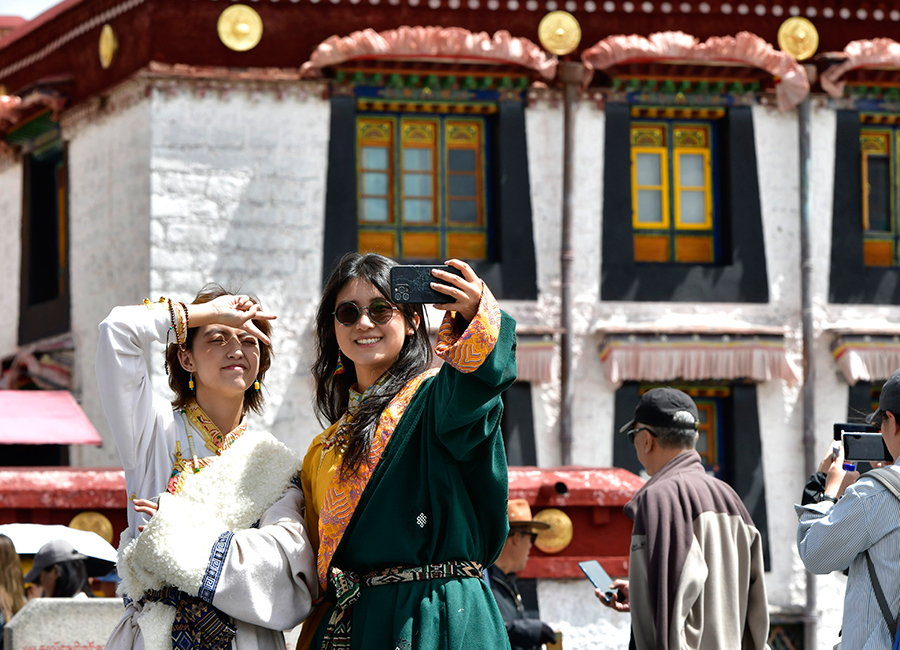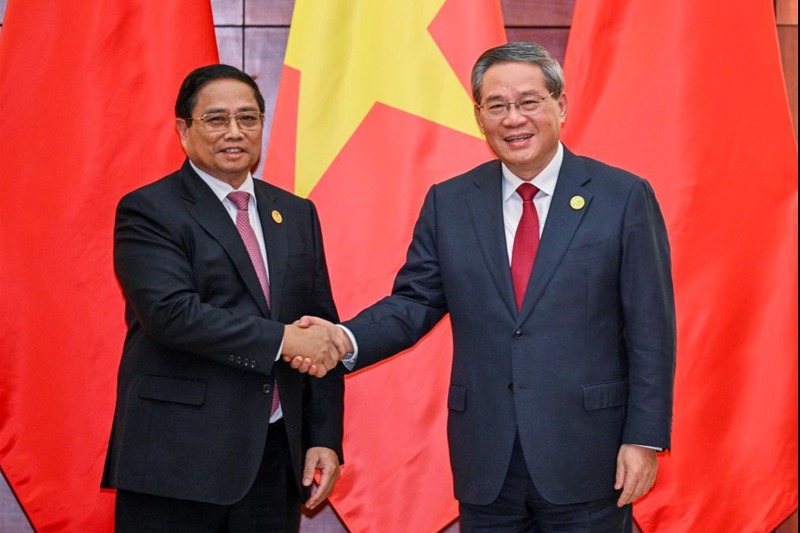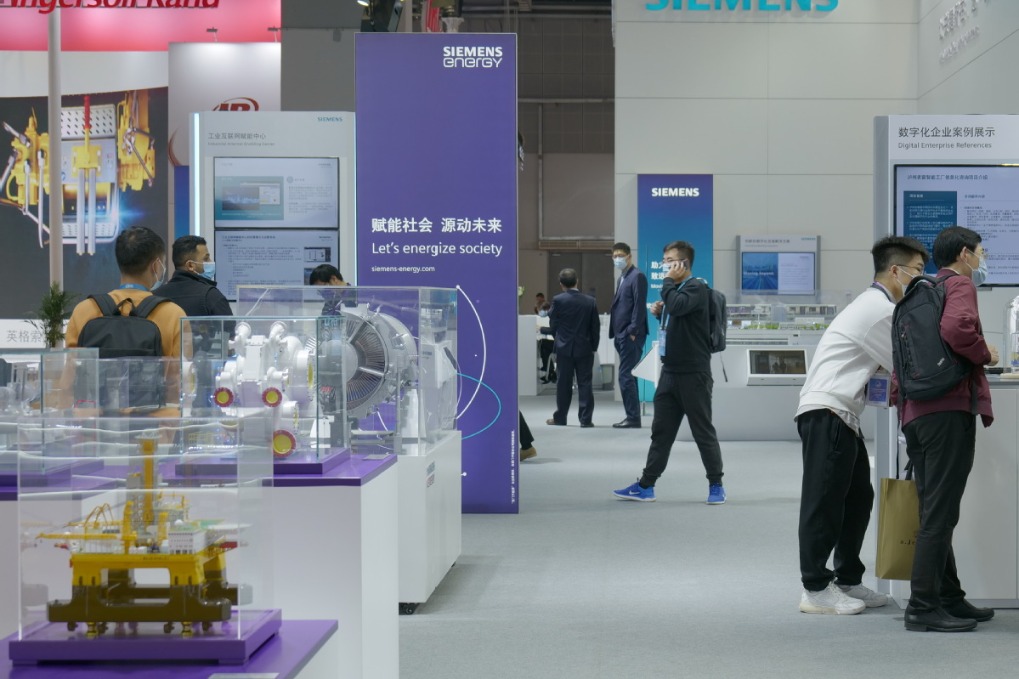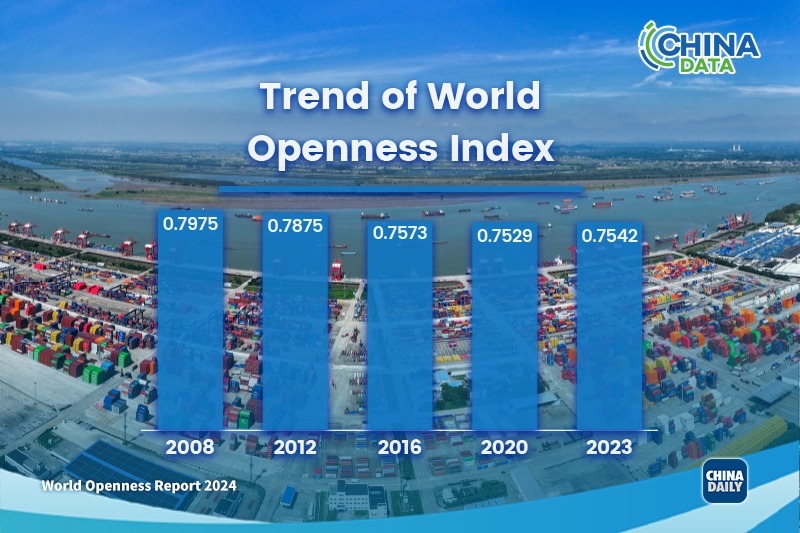AI 'tourism assistants' are making travel easier


Iron Man's AI butler Jarvis, who is tasked with business operations and Tony Stark's security protection in the movies, may not be a fictional fantasy anymore, as more AI tourism assistants have been developed to serve the Chinese tourists by arranging for them travel routes and accommodation in recent years.
"I started to use some AI apps to arrange trips from May, for the May Day holiday, as it's a tough and time-consuming job to grab useful information on the destinations' tourism attractions and accommodations from mass and overloaded information pools online. These apps I've tried, like the ChatGPT, can help organize some rough routes," said Bao Yawei, a 26-year-old from Beijing.
The AI "tourism assistants" can increase the efficiency by integrating and filtering overloaded information online, she said.
"I used to switch from one app to another checking the opening hours of certain attractions and seeing the evaluation of hotels I wished to stay. Now, what I need to do is to type in my needs — like 'please arrange me a three-day trip to Shanghai' in the app, and I will get an itinerary highlighted with some must-go spots and good restaurants," Bao said, while adding that the quality of the traveling plans by these AI "tourism assistants", however, may vary from case to case.
"It's helpful, anyway, if you are not a picky traveler," she said.
Bao is among the increasing clusters of users trying out new technologies to ease their travel burdens. And many companies have also caught the timing right to optimize their AI tourism services to take market share.
The tourism technology company Visiotrip — founded in 2021 and headquartered in Beijing, is one of the early explorers combining AI technology with tourism services.
On a mobile application named "Huanmeng Trip", users can interact with the AI tourism assistant Emily real-time to get travel recommendations and plans by typing in their needs in the dialogue box. The app for now only supports the Chinese language.
Hui Pengrui, co-founder and chief technology officer of Visiotrip, said that the company has noted the increasing population of young travelers wishing to get personalized and flexible combinations of tour products and travel plans, something even some big online travel agencies didn't offer back in 2021.
"Emily can tailor a trip for the user based on his or her preferences and interest," he said. According to Visiotrip, its AI tourism services are so far available to users planning trips to 10 domestic and overseas destinations including Sichuan, Yunnan provinces in Southwest China, Hong Kong, and Singapore. The company estimated that it will offer AI tourism services to over 3 million people by the end of 2024.
Wei Changren, founder of btiii.com, a tourism-related financial news website, said that it's an inevitable trend to apply AI technology to tourism services in the future, but it still takes time to efficiently and precisely get users' real needs and solve their problems in the process of developing and optimizing these AI tools.
"Good AI tourism services needs support of large amounts of data, learning of people's consumption behavior and interaction with real travelers," he said, adding that the AI tools will be useful supplements to traditional human services, rather than a replacement as tourism is an activity with human touch, emotions and companionship.
Early in May, five central departments such as the Ministry of Culture and Tourism and the National Development and Reform Commission released a notice to encourage government bodies and companies to develop smart tourism assistance apps and enhancing online tourism services.
The move aims to improve China's smart tourism infrastructure and product supplies, also the tourism management ability, and let more tourists get convenience and benefits from these improvements by 2027.




































